|
FROG
SYNDROME
- METAPHOR
PLEASE USE OUR A-Z INDEX
TO NAVIGATE THIS SITE

..
Definitions for The boiling frog story is a widespread anecdote describing a frog slowly being boiled alive The premise is that if a frog is placed in boiling water it will jump out but if it is placed in cold water that is slowly heated it will not perceive the danger and will be cooked to death The story is often used as a metaphor for the inability or unwillingness of people to react to significant changes that occur gradually According to contemporary biologists the premise of the story is not literally true a frog submerged and gradually heated will jump out However some 19th-century experiments suggested that the underlying premise is true provided the heating is sufficiently gradual.
The story has been retold many times and used to illustrate widely varying viewpoints. Among them: in 1960 about sympathy towards the Soviet Union during the Cold War; in 1980 about the impending collapse of civilization anticipated by survivalists; in the 1990s about inaction in response to climate change and staying in abusive relationships. It has also been used by libertarians to warn about slow erosion of civil rights.
Law professor and legal commentator Eugene Volokh commented in 2003 that regardless of the behavior of real frogs, the boiling frog story is useful as a metaphor, comparing it to the metaphor of an ostrich with its head in the sand. Economics Nobel laureate and New York Times op-ed writer Paul Krugman used the story as a metaphor in a July 2009 column, while pointing out that real frogs behave differently. Journalist James Fallows has been advocating since 2006 for people to stop retelling the story, describing it as a "stupid canard" and a "myth". After Krugman's column appeared, however, he declared "peace on the boiled frog front" and said that using the story is acceptable if the writer points out that it is not literally true.
EXPERIMENTS
During the 19th century, several experiments were performed to observe the reaction of frogs to slowly heated water. In 1869, while doing experiments searching for the location of the soul, German physiologist Friedrich Goltz demonstrated that a frog that has had its brain removed will remain in slowly heated water, but an intact frog attempted to escape the water when it reached 25 °C.
Other 19th-century experiments were purported to show that frogs did not attempt to escape gradually heated water. An 1872 experiment by Heinzmann was said to show that a normal frog would not attempt to escape if the water was heated slowly enough, which was corroborated in 1875 by Fratscher.
In 1888, William Thompson Sedgwick said that the apparent contradiction between the results of these experiments was a consequence of different heating rates used in the experiments: "The truth appears to be that if the heating be sufficiently gradual, no reflex movements will be produced even in the normal frog; if it be more rapid, yet take place at such a rate as to be fairly called 'gradual', it will not secure the response of the normal frog under any circumstances". Goltz had raised the temperature of the water from 17.5 °C to 56 °C in about ten minutes, or 3.8 °C per minute, in his experiment, whereas Heinzmann heated the frogs over the course of 90 minutes from about 21 °C to 37.5 °C, a rate of less than 0.2 °C per minute. In "On the Variation of Reflex Excitability in the Frog induced by changes of Temperature" (1882) Sedgwick writes: "in one experiment by Scripture the temperature was raised at a rate of 0.002°C per second, and the frog was found dead at the end of 2½ hours without having moved."
CREEPING NORMALITY
Creeping normality (also called landscape amnesia) is the way a major change can be accepted as a normal situation if it happens slowly through unnoticeable increments of change. The change could otherwise be regarded as objectionable if it took place in a single step or short period.
The phrase creeping normality was coined by American scientist Jared Diamond in his 2005 book, Collapse: How Societies Choose to Fail or Succeed. He had previously alluded to this theory while attempting to explain why, in the course of long-term environmental degradation, Easter Island natives would, seemingly irrationally, chop down the last tree:
I suspect, though, that the disaster happened not with a bang but with a whimper. After all, there are those hundreds of abandoned statues to consider. The forest the islanders depended on for rollers and rope didn't simply disappear one day—it vanished slowly, over decades.
SINGAPORE FLOODS
Peter Ho referred to creeping normality in his four-part IPS-Nathan lecture series in spring of 2017. In regard to several issues Singapore is facing, he claimed that "things get just a little bit worse each year than the year before, but not bad enough for anyone to notice".
As an example, he used the increase in flooding in Singapore. He stated that the country did not realize the problem was caused by rising temperatures due to catastrophic climate change and not poor drainage, as first suspected.

Solutions present themselves and get sidelined as so-called
expert committees sit on their hands looking for something
that is more to their liking, despite the fact that they need
an answer now.

INSTITUTIONALIZATION
- Study of the
British Board
of Longitude reveals more than just the story of an
institution. It shows how economic interests influenced the
political and scientific activities of a state.
The Board
of Longitude can be equated with the process of
ever-increasing institutionalization, the aim of which was to
steer knowledge production. In this way, the production of
knowledge was closely linked to the state.
The
reasons for this were changes within the "scientific
landscape" of the United Kingdom and the concomitant
struggle for supremacy in influencing the distribution of
state support for the science of astronomy and other related
scientific projects, the proof of which is that all the
surviving papers come from the archives of the Royal
Astronomers and their successors, as if John Harrison's
solution was perceived as a threat to their dominance of
science. John Harrison was thought of as a maverick, who was
grudgingly provided financial support, instead of being
generously funded to accelerate development.
We
should always then look at the appointment of committees and
the interests of their members, that should perhaps be
recorded in a book declaring such interests such as to avoid
potential conflicts. But there is no point in having such a
book if there is no effective policing of the corruption that
is inevitable where many can be made from technology for those
in positions of trust.
Poor
old John
Harrison was caught up in this mire of subterfuge. But do
not think for one minute, that it is any different today.

POLITICAL
BLOCKERS - In Britain in 1865, the legislative response to the increasing introduction of self-propelled vehicles on our roads was the Locomotive Act (sometimes known as the Red Flag Act). Amongst a number of provisions, it stipulated that self-propelled vehicles needed to be proceeded with a man walking 60 yards ahead carrying a red flag to warn other road users of the vehicles approach.
The objective of powerful stakeholders was to hinder progress
to protect their investments in horses, carriages and trains.
OUR
(SUGGESTED) SIX STEPS TOWARD A COOLER PLANET
1.
TRANSPORT:
Phase out polluting vehicles. Governments aim to end the
sale of new petrol,
and diesel
vehicles by 2040 but have no infrastructure plan to support
such ambition. Such infrastructure should exceed the
performance of fossil
fuel filling stations, prolong EV
battery life and provide power grids with a measure of load
leveling. Any such system should seek to obviate the provision
of millions of fast charge points where implementation could
prove to be a logistical nightmare. This may involve
international agreement as to energy storage format and
statute to steer car makers to collaborate in part in a world
of competition.
Marine
transport can be carbon
neutral given the right policies, with phased transition
in specific stages such as not to unduly penalize present
investment in LNG
shipping and other recent MARPOL
compliant IC
powered vessels. Future cargo vessel should be at least in
part powered by renewable energy, on the road to zero
carbon, making allowances for technology catchup.
Air
travel powered by kerosene should attract hefty mitigation
offset, where low carbon alternatives should be encouraged.
2.
RENEWABLES:
Renewable
energy should replace carbon-based fuels (coal,
oil
and gas)
in our electricity for homes, factories, heating and
transport. Coal
and nuclear
power plants should be phased out.
3.
HOUSING:
On site micro or macro generation is the best option,
starting with new build homes that are both affordable and
sustainable by design to replace crumbling housing stocks.
Encourage building in timber
to provide carbon lock from a renewable natural resource.
4.
AGRICULTURE:
We need to grow more trees
to absorb carbon emissions from a growing
population, air travel, and to build new homes. We should
promote reductions in food waste and eating of foods that use
less energy to produce. Educate children on these matters in schools
and via campaigns such as no
meat Mondays, should be part of ordinary study.
5.
INDUSTRY:
Factories should be aiming for solar heating and onsite
renewable energy
generation. EV parking and even service facilities should be
part of new industrial estates as part of any building
permissions.
6.
POLITICS:
- National governing bodies need to adopt rules to
eliminate administrative wastages, to include scaling down
spending on war machines, increasing spend on educating the
public and supporting sustainable social policies that mesh
with other cultures. This includes fostering policies and
making funds available to close links in the technology chain
to make up for lost time. Kleptocratic
empire building must cease in the search for natural
equilibrium.
SUSTAINABILITY
BEGINS AT HOME
What happens on your doorstep
is what is happening all over the world. Everyone is empire
building, over fishing and dumping waste in our oceans in the belief that a little bit more indulgence won't
matter. Yes it will!!
     
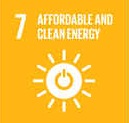 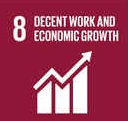 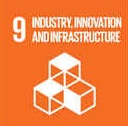   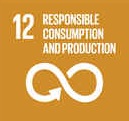
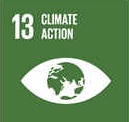 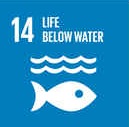   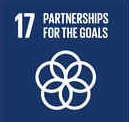 
LINKS
& REFERENCE
https://

This website is
provided on a free basis as a public information service. copyright © Cleaner
Oceans Foundation Ltd (COFL) (Company
No: 4674774) 2020.
Solar
Studios, BN271RF, United Kingdom.
COFL is
a company without share capital.
|





















